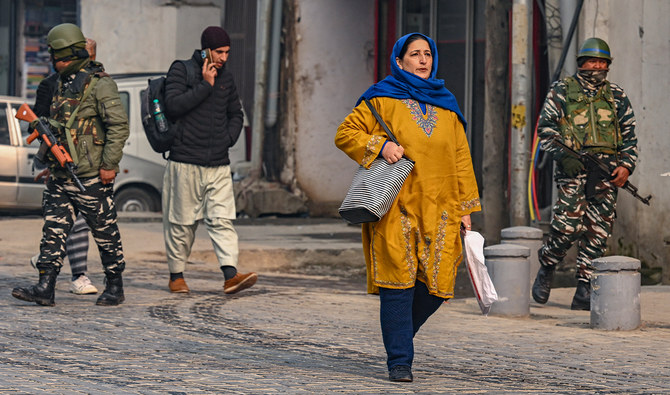Pakistani President Asif Ali Zardari and Pakistani Prime Minister Shahbaz Sharif called for the implementation of United Nations Security Council (UNSC) resolutions for the resolution of Jammu and Kashmir issue.
President Zardari and Prime Minister Sharif issued messages on the 5th anniversary of India’s abolition of special status of Jammu and Kashmir on 5 August 2019.
“For the sake of lasting peace and security, India must move from conflict denial to conflict resolution”
“This somber incident reminds us of the grave consequences of India’s illegal actions against the illegally occupied Jammu and Kashmir on August 5, 2019,” President Zardari said in his message.
Zardari said that India was trying to convince the world that Jammu and Kashmir was an integral part of its territory, adding:
“However, international law, historical facts, moral principles and the situation in the region belie India’s baseless claims. Today, in Jammu and Kashmir, many efforts are being made to silence the real leadership of the Kashmiri people and the media. The number of political prisoners is in the thousands, while 14 political organisations have been outlawed. Harassment of innocent people, arbitrary arrests and so-called ‘siege and search’ operations have become routine. Indian forces continue their operations with impunity, with the rights granted to them under various draconian laws.”
Saluting the Kashmiri people for their bravery, Zardari said, “History has repeatedly proven that lasting peace in South Asia depends on the resolution of the Jammu and Kashmir dispute. For the sake of lasting peace and security in South Asia, India must move from conflict denial to conflict resolution.”
Zardari called on the international community to end human rights violations in the region, reverse India’s decision to revoke the special status of Jammu and Kashmir and implement the UNSC resolutions on Jammu and Kashmir, saying, “Pakistan will continue to extend its strong moral, political and diplomatic support to the Kashmiri people until their inalienable right to self-determination is re-established.”
“Kashmiris expected India to fulfil its solemn UN commitments”
Pakistani Prime Minister Sharif also stated that the 5th anniversary of the abrogation of Jammu and Kashmir’s special status by India was approaching and that the decisions taken by India were “unilateral” and “illegal”.
Noting that the campaign was being carried out on the demographic structure and political landscape of Jammu and Kashmir, Sharif said, “Issuing domicile certificates to foreigners, enrolling temporary residents in the voter lists, reorganizing assembly constituencies, changing land and property management laws are some of the key features of this campaign.”
Referring to the UNSC decisions and the Geneva Convention, Şerif made the following assessments:
“All these measures are a clear violation of international law, including UNSC resolutions and the 4th Geneva Convention. The continued presence of hundreds of thousands of Indian troops has made Jammu and Kashmir one of the most heavily militarized regions in the world. The gross human rights violations in Jammu and Kashmir have been extensively documented and condemned globally. The ill-treatment of Kashmiri journalists and human rights defenders has further demonstrated India’s willingness to go to any lengths to silence dissenting voices.”
Noting that the just struggle of the people of Jammu and Kashmir cannot be suppressed through local legislation and judicial decisions, Sharif said, “For the last 75 years, Kashmiris have been waiting for India to fulfil its solemn commitments to the UN.”
Requesting the international community to call on India to end human rights violations in Jammu and Kashmir and implement relevant UNSC resolutions, Sharif stressed that Pakistan would continue to provide moral, diplomatic and political support to the people of Jammu and Kashmir.
Removal of special status of Jammu and Kashmir
On August 5, 2019, India abolished Article 370 of the constitution, which had granted privilege to Jammu and Kashmir for more than half a century, removing the region’s special status and dividing the state into two.
The state was officially bifurcated into two centrally-administered “Union Territories” of Jammu and Kashmir and Ladakh on October 31, 2019.
Following the decision, Indian security forces intensified law and order operations and pressure on the people in Jammu and Kashmir, imposed a curfew, as well as restrictions on the internet, telephone and transportation, and detained leaders and members of local parties in the region.
Since independence from Britain in 1947, Jammu and Kashmir has enjoyed the privilege of being able to enact its own laws, including a citizenship law that prohibits foreigners from settling in the region and owning property.
